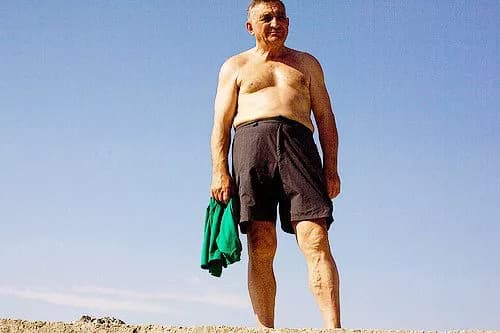
Use It Or Lose It: Stopping Exercise Decreases Brain Blood Flow
We all know that we can quickly lose cardiovascular endurance if we stop exercising for a few weeks, but what impact does the cessation of exercise have on our brains? New research led by University of Maryland School of Public Health researchers examined cerebral blood flow in healthy, physically fit older adults (ages 50-80 years) before and after a 10-day period during which they stopped all exercise. Using MRI brain imaging techniques, they found a significant decrease in blood flow to several brain regions, including the hippocampus, after they stopped their exercise routines.
"We know that the hippocampus plays an important role in learning and memory and is one of the first brain regions to shrink in people with Alzheimer's disease," says Dr. J. Carson Smith, associate professor of kinesiology and lead author of the study, which is published in Frontiers in Aging Neuroscience in August 2016. "In rodents, the hippocampus responds to exercise training by increasing the growth of new blood vessels and new neurons, and in older people, exercise can help protect the hippocampus from shrinking. So, it is significant that people who stopped exercising for only 10 days showed a decrease in brain blood flow in brain regions that are important for maintaining brain health."
The study participants were all "master athletes," defined as people between the ages of 50 and 80 (average age was 61) who have at least 15 years history of participating in endurance exercise and who have recently competed in an endurance event. Their exercise regimens must have entailed at least four hours of high intensity endurance training each week. On average, they were running ~36 miles (59 km) each week or the equivalent of a 10K run a day! Not surprisingly, this group had a V02 max above 90% for their age. This is a measure of the maximal rate of oxygen consumption of an individual and reflects their aerobic physical fitness.
Dr. Smith and colleagues measured the velocity of blood flow in brain with an MRI scan while they were still following their regular training routine (at peak fitness) and again after 10 days of no exercise. They found that resting cerebral blood flow significantly decreased in eight brain regions, including the areas of the left and right hippocampus and several regions known to be part of the brain's "default mode network" -- a neural network known to deteriorate quickly with a diagnosis of Alzheimer's disease. This information adds to the growing scientific understanding of the impact of physical activity on cognitive health.
"We know that if you are less physically active, you are more likely to have cognitive problems and dementia as you age," says Dr. Smith. "However, we did not find any evidence that cognitive abilities worsened after stopping exercising for just 10 days. But the take home message is simple -- if you do stop exercising for 10 days, just as you will quickly lose your cardiovascular fitness, you will also experience a decrease in blood brain flow."
Dr. Smith believes that this could have important implications for brain health in older adults, and points to the need for more research to understand how fast these changes occur, what the long term effects could be, and how fast they could be reversed when exercise is resumed.
The above post is reprinted from materials provided by University of Maryland. Note: Content may be edited for style and length.
Disclaimer: DoveMed is not responsible for the adapted accuracy of news releases posted to DoveMed by contributing universities and institutions.
Primary Resource:
Alfini, A. J., Weiss, L. R., Leitner, B. P., Smith, T. J., Hagberg, J. M., & Smith, J. C. (2016). Hippocampal and Cerebral Blood Flow after Exercise Cessation in Master Athletes. Frontiers in Aging Neuroscience, 8.
Related Articles
Test Your Knowledge
Asked by users
Related Centers
Related Specialties
Related Physicians
Related Procedures
Related Resources
Join DoveHubs
and connect with fellow professionals

0 Comments
Please log in to post a comment.